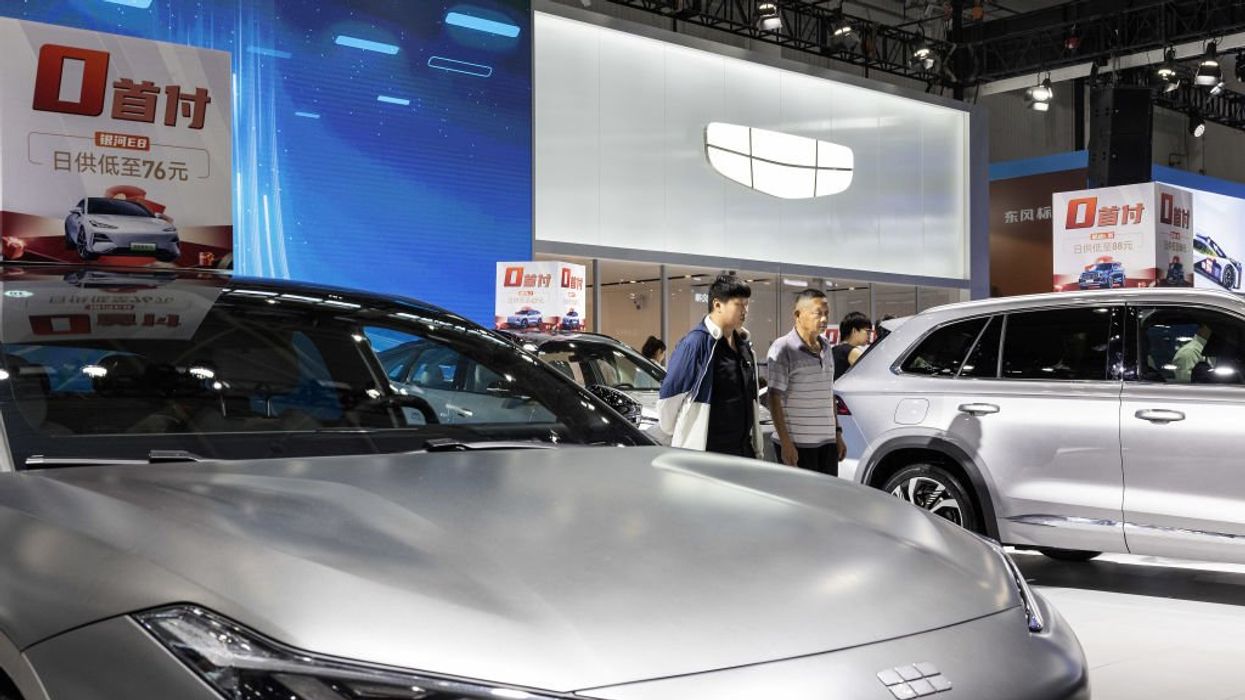
SOPA Images/Getty Images

To compete with China, American automakers need listen to consumers while shoring up domestic supply chains.
There's one simple reason automakers like Ford and GM are stepping back from their ambitious EV plans: their customers.
Contrary to the exuberant predictions of Elon Musk, environmental groups, and other industry and government “experts," the love affair between EVs and the American consumer seems to have fizzled after a honeymoon period of robust sales volumes.
Meanwhile, China is happy to serve the consumers its competitors have neglected. In late 2022, it took over nearly 100% of the Russian car market in a matter of months
Turns out these relatively pricey novelties just aren't as appealing anymore, especially when hybrids offer most of the efficiency without the range anxiety.
A look at the change in market share makes it clear that the process of going all in — or even mostly in — on EVs is going to take decades rather than years.
My strong sense of this was validated by last year's iSeeCars.com study, which showed sales in cities and states with more than 7% new EV market share growing much more slowly than in markets below that threshold.
It seems that the media- and government-fueled hype around the latest must-have technology can only take you so far. Getting from 3 to 7% EV share is much easier than getting from 7 to 10%. As for 20, 30% or more? That's clearly a long way off.
This retreat from EVs clearly makes sense for American automakers. But could it risk ceding ground to China?
Not necessarily. The Chinese already have every advantage when it comes to EVs, from their chokehold on the global lithium supply to their ability to reduce costs by aligning their manufacturing sectors with the government. Before going toe-to-toe with them, we might want to strengthen our position.
The best move for U.S. automakers is to sell Americans the gasoline and hybrid models they want right now, while developing their own domestic EV supply chains. This will allow carmakers like Ford and GM to maintain healthy sales and profit while funding a more measured, and realistic, approach to electric vehicles.
They've already tried the shock-and-awe, flood-the-market approach, and it taught us an expensive lesson. Now, the challenge is how quickly they can adjust production to reflect true consumer demand.
Even China isn't betting it all on EVs. It's been snatching up internal combustion-engine technology that left-leaning European brands have foolishly discarded.
While Biden and the Green New Deal zealots have been trying to force a one-size-fits-all solution on American citizens, Chinese carmaker Geely has been building some 15 internal combustion engine plants in Europe, which will supply ultra-efficient 4-cylinder turbo engines to Mercedes, Nissan, Renault, Volvo, and other brands caught up short by the cooling EV demand.
Some brands — BMW, Hyundai, KIA, Genesis, and Toyota — did see the writing on the wall in time and had the foresight to keep offering consumers a choice. Their bottom lines are better off because of it.
Meanwhile, China is happy to serve the consumers its competitors have neglected. In late 2022, it took over nearly 100% of the Russian car market in a matter of months. All it had to do was supply the good old-fashioned gas-powered vehicles nobody else seemed interested in making. The result has been China's biggest export boom ever.
Imagine that — innovating in new, EV technology while still catering to consumers who aren't ready to make the change.
It's called hedging your bets, and all smart players do it. The current administration might want to look into it.
Lauren Fix